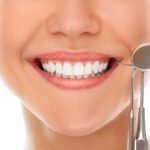Table of Contents
Common Causes of Dry Mouth
Dry mouth, scientifically known as xerostomia, can be caused by various factors. One common cause is medication, particularly antihistamines, decongestants, and certain antidepressants, which can inhibit saliva production. Additionally, certain medical conditions such as diabetes, Sjögren’s syndrome, and HIV/AIDS can also contribute to dry mouth by affecting salivary gland function.
| Category | Cause | Explanation |
|---|---|---|
| Medications | – Antidepressants – Antihistamines – Decongestants – Diuretics – Blood pressure medications | Many medications can have dry mouth as a side effect. This is because they can interfere with the signals sent to the salivary glands to produce saliva. |
| Medical Conditions | – Sjögren’s syndrome – Diabetes – HIV/AIDS – Parkinson’s disease – Alzheimer’s disease – Autoimmune diseases | Certain medical conditions can damage the salivary glands or affect their function, leading to dry mouth. |
| Lifestyle Habits | – Dehydration – Smoking and tobacco use – Alcohol consumption – Caffeine intake – Mouth breathing | These habits can contribute to dry mouth by dehydrating the body or directly affecting saliva production. |
| Medical Treatments | – Radiation therapy to the head and neck – Chemotherapy | These treatments can damage the salivary glands, causing temporary or permanent dry mouth. |
| Other Factors | – Age (dry mouth is more common in older adults) | As we age, saliva production naturally decreases, increasing the risk of dry mouth. |
Moreover, lifestyle choices like smoking or using tobacco products can exacerbate dry mouth due to their detrimental effects on oral health. Mouth-breathing, whether due to nasal congestion or habitual breathing patterns, can also lead to decreased saliva flow, resulting in dry mouth. It is vital for individuals experiencing persistent dry mouth to consult with a healthcare professional to determine the underlying cause and appropriate treatment plan.
Symptoms of Dry Mouth to Watch Out For
Dry mouth, also known as xerostomia, is characterized by reduced saliva production and can lead to various uncomfortable symptoms. One common indication of dry mouth is a persistent feeling of dryness in the mouth, throat, and lips. Patients may also experience difficulty chewing, swallowing, and speaking due to the lack of lubrication provided by saliva. Additionally, individuals with dry mouth might notice a sticky or stringy saliva texture, leading to an overall unpleasant oral sensation.
| Symptom | Description |
|---|---|
| Dryness in the mouth: | This is the most common symptom and can feel like a constant feeling of thirst, even after drinking fluids. |
| Sticky or thick saliva: | Saliva may feel thick and stringy, making it difficult to speak or swallow. |
| Dry, cracked lips: | Dryness can lead to peeling, cracking, and chapping of the lips. |
| Sore throat and hoarseness: | Dryness can irritate the throat and vocal cords, causing a sore throat and difficulty speaking. |
| Difficulty chewing and swallowing: | Dryness can make it difficult to moisten food, leading to difficulty chewing and swallowing, especially dry or sticky foods. |
| Taste changes: | Dryness can alter your sense of taste, making food taste bland or metallic. |
| Bad breath (halitosis): | Dryness can lead to an increase in bacteria in the mouth, contributing to bad breath. |
| Tongue discomfort: | The tongue may feel dry, rough, and irritated. |
| Trouble wearing dentures: | Dryness can make it difficult to wear dentures comfortably. |
| Frequent need to drink fluids, especially at night: | Waking up thirsty at night can be a sign of dry mouth. |
Furthermore, dry mouth can manifest as bad breath or halitosis, which can be embarrassing and impact one’s social interactions. In some cases, patients may develop a sore throat, cracked lips, or mouth sores due to the lack of moisture in the oral cavity. It is important to be mindful of these symptoms and seek professional dental advice if dry mouth persists, as it can have detrimental effects on oral health and overall quality of life.
Effects of Untreated Dry Mouth
Chronic untreated dry mouth can lead to a multitude of oral health complications, primarily stemming from the decreased saliva production and its implications. Saliva plays a crucial role in maintaining oral health by neutralizing acids, washing away food particles and bacteria, and aiding in digestion. Without an adequate amount of saliva, individuals may be at a higher risk of developing cavities, gingivitis, and other infections due to the lack of protective factors that saliva provides in the oral cavity.

Furthermore, the absence of saliva can also contribute to difficulties in speaking, swallowing, and even tasting food. Persistent dry mouth can impact one’s quality of life significantly, leading to discomfort, irritability, and potentially affecting social interactions due to halitosis or bad breath. It is essential to address dry mouth promptly to prevent these adverse effects on both oral health and overall well-being.
Diagnosis Process for Dry Mouth
During the diagnosis process for dry mouth, healthcare providers typically begin by conducting a thorough medical history review with the patient. This includes identifying any underlying health conditions, medications being taken, past surgeries, and lifestyle factors that may contribute to dry mouth. Additionally, a physical examination of the oral cavity and salivary glands is performed to assess for signs of decreased saliva production or related issues such as oral infections or inflammation. Specialized tests like salivary flow rate measurements or salivary gland imaging may be recommended to further evaluate the severity and underlying causes of dry mouth.
In some cases, healthcare providers may collaborate with other medical specialists such as otolaryngologists, endocrinologists, or rheumatologists to rule out systemic conditions that could be contributing to dry mouth. Diagnostic tests like blood work, imaging studies, or saliva analysis may be ordered to pinpoint the exact cause of xerostomia. Early detection and accurate diagnosis are crucial in effectively managing dry mouth and addressing any potential complications that may arise due to this condition.
Importance of Hydration for Managing Dry Mouth

Proper hydration plays a crucial role in managing the discomfort associated with dry mouth. When the body is dehydrated, saliva production decreases, exacerbating dry mouth symptoms. By drinking an adequate amount of water throughout the day, individuals with dry mouth can help maintain moisture levels in the oral cavity, promoting better oral health.
In addition to water, consuming sugar-free beverages can also aid in managing dry mouth. Avoiding sugary drinks is essential, as they can contribute to dental decay and further aggravate dry mouth symptoms. Opting for beverages that do not contain sugar can help stimulate saliva flow, providing a natural way to alleviate dryness in the mouth.
Medications That May Cause Dry Mouth
Dry mouth, or xerostomia, can be caused by various medications that interfere with saliva production. Common culprits include antihistamines, decongestants, antidepressants, muscle relaxants, and medications for high blood pressure. These drugs can disrupt the functioning of salivary glands, leading to decreased saliva production and resulting in dry mouth symptoms.
Additionally, certain medications used to treat anxiety, asthma, and pain can also contribute to dry mouth. It is essential for healthcare providers to be aware of the potential side effects of the medications they prescribe and to inform patients about the risk of developing dry mouth. Patients experiencing dry mouth as a side effect of their medications should consult their healthcare provider for possible adjustments or alternative treatment options to alleviate this uncomfortable condition.
Oral Health Complications Associated with Dry Mouth
Dry mouth, also known as xerostomia, can lead to a myriad of oral health complications if left untreated. Saliva plays a crucial role in maintaining oral health by helping to neutralize acids, remineralize teeth, and wash away food particles. In cases of chronic dry mouth, the lack of saliva can contribute to an increased risk of tooth decay, gum disease, and oral infections. Additionally, the absence of saliva can result in difficulty chewing and swallowing, further impacting one’s oral health.

Furthermore, persistent dry mouth can lead to bad breath, also known as halitosis, which can be socially distressing and affect one’s self-esteem. The reduction in saliva flow can create an environment where bacteria thrive, leading to the development of plaque and tartar buildup. Without adequate saliva to combat these issues, individuals with dry mouth may experience a decline in their overall oral health, emphasizing the importance of addressing this condition promptly to prevent further complications.
Lifestyle Changes to Alleviate Dry Mouth Symptoms
To alleviate symptoms of dry mouth, making certain lifestyle changes can be beneficial. One key adjustment is to avoid tobacco and limit alcohol consumption, as both can exacerbate dry mouth. Additionally, practicing good oral hygiene by brushing teeth at least twice a day with fluoride toothpaste and flossing daily can help maintain oral health and reduce dry mouth discomfort.
Furthermore, staying hydrated by drinking plenty of water throughout the day is essential in managing dry mouth symptoms. Sipping water frequently, especially during meals, can help stimulate saliva production and alleviate the feeling of dryness in the mouth. Moreover, using sugar-free gum or lozenges can also help stimulate saliva flow, providing temporary relief from dry mouth symptoms.
Home Remedies for Dry Mouth Relief
One effective home remedy for addressing dry mouth is to try sugar-free gum or candies. Chewing gum or sucking on sugar-free candy can help stimulate saliva production, which can alleviate the discomfort of dry mouth. Saliva plays a crucial role in maintaining oral health by helping to wash away food particles, neutralize acids, and prevent tooth decay. Additionally, staying hydrated by drinking plenty of water throughout the day can also help combat dry mouth and keep the mouth moist.

In addition to sugar-free gum and candies, incorporating foods rich in water content into your diet can be beneficial for managing dry mouth symptoms. Fruits like watermelon, cucumber, and citrus fruits can help increase saliva production and provide natural hydration to the mouth. Consuming moist foods such as soups, stews, and smoothies can also help keep the mouth moist and alleviate dry mouth discomfort. It is important to be mindful of your dietary choices and opt for foods that can help support saliva production and oral health when dealing with dry mouth.
Professional Treatments for Severe Dry Mouth
For individuals experiencing severe dry mouth, professional treatments may offer relief and aid in managing this condition effectively. One common approach is the use of prescription medications that stimulate saliva production, such as pilocarpine or cevimeline. These medications can help increase moisture in the mouth, reducing discomfort and promoting better oral health. Additionally, in some cases, healthcare providers may recommend saliva substitutes or saliva stimulants to alleviate dry mouth symptoms and improve overall oral comfort.
Another professional treatment option for severe dry mouth is the use of oral sprays or mouthwashes specifically formulated to combat dryness. These products often contain ingredients like xylitol or fluoride to help moisturize the mouth and protect against dental decay. Regular use of these oral products can contribute to a healthier oral environment and reduce the risks associated with chronic dry mouth.
Dietary Recommendations for Managing Dry Mouth
For individuals experiencing dry mouth, making wise dietary choices can greatly contribute to managing this condition effectively. Opting for water-rich fruits and vegetables, such as cucumbers, watermelon, and oranges, can help to keep the mouth hydrated and stimulate saliva production. Consuming sugar-free candies or chewing gum that contains xylitol can also aid in saliva flow without promoting tooth decay.
In contrast, it is advisable to limit the intake of salty and spicy foods, as well as beverages high in caffeine or alcohol, as these can exacerbate dry mouth symptoms. Additionally, avoiding sugary and acidic foods is crucial, as they can be harmful to oral health and may worsen the discomfort associated with dry mouth. By being mindful of food choices and incorporating hydrating and saliva-stimulating options into one’s diet, individuals can better manage the effects of dry mouth and promote overall oral well-being.
Preventive Measures to Avoid Dry Mouth
To reduce the risk of developing dry mouth, it is essential to stay hydrated by consuming an adequate amount of water throughout the day. Dehydration can exacerbate dry mouth symptoms, so be mindful of your fluid intake. Additionally, avoiding tobacco products and excessive alcohol consumption can help prevent dry mouth, as these substances can contribute to decreased saliva production.
Furthermore, practicing good oral hygiene, such as brushing your teeth twice a day and flossing regularly, can help maintain overall oral health and reduce the likelihood of developing dry mouth. It is also recommended to schedule regular dental check-ups to address any potential oral health issues early on. By implementing these preventive measures, you can decrease the chances of experiencing dry mouth and its associated complications.
Potential Complications of Chronic Dry Mouth
Chronic dry mouth, medically known as xerostomia, can lead to a variety of potential complications if left untreated. The lack of saliva in the mouth hinders its natural cleansing and protective functions, resulting in an increased risk of tooth decay and gum disease. Without an adequate flow of saliva to neutralize acids and wash away food particles and bacteria, the oral environment becomes more susceptible to harmful pathogens, leading to cavity formation and periodontal issues over time.
Moreover, chronic dry mouth can also impact one’s overall quality of life by causing discomfort, difficulty in speaking and swallowing, as well as affecting taste perception. Saliva plays a crucial role in the digestion process by aiding in the breakdown of food and facilitating swallowing. Therefore, individuals with xerostomia may experience challenges in properly chewing and digesting food, which can further contribute to nutritional deficiencies and related health issues if not addressed promptly and effectively.
Tips for Improving Saliva Production
Ensuring adequate saliva production is crucial for maintaining good oral health. Chewing sugar-free gum can help stimulate saliva flow, aiding in the prevention of dry mouth. Additionally, staying hydrated by drinking plenty of water throughout the day is essential in promoting saliva production.
Incorporating foods that require more chewing, such as crunchy fruits and vegetables, can also help stimulate saliva production naturally. Avoiding tobacco and excessive caffeine intake can further contribute to better saliva flow. Remember, regular dental check-ups can help identify any issues related to dry mouth early on, allowing for prompt treatment and management.
Overall Impact of Dry Mouth on Quality of Life
Dry mouth, also known as xerostomia, can have a profound impact on an individual’s quality of life. The constant feeling of dryness in the mouth can lead to difficulties in speaking, chewing, and swallowing, making simple daily tasks uncomfortable and challenging. Furthermore, the lack of saliva can result in an increased risk of dental decay and oral infections, contributing to overall oral health issues. Patients with chronic dry mouth may also experience bad breath, which can affect their social interactions and self-esteem.
In addition to the physical discomfort and oral health complications, dry mouth can also impact a person’s enjoyment of food and beverages. The reduced saliva production can alter the taste and texture of food, diminishing the overall sensory experience of eating. This can lead to a decrease in appetite and nutritional deficiencies if left untreated. Moreover, the psychological impact of living with a persistent dry mouth should not be underestimated, as it can cause frustration, anxiety, and a decreased quality of life for those affected.
Can dry mouth lead to bad breath?
Yes, dry mouth can contribute to bad breath as saliva helps to cleanse the mouth and remove bacteria that can cause odor.
Are there any specific dental products designed to help with dry mouth?
Yes, there are specially formulated toothpastes, mouthwashes, and lubricating gels available over-the-counter to help manage dry mouth symptoms.
How can I improve my overall quality of life while dealing with dry mouth?
In addition to staying hydrated and maintaining good oral hygiene, practicing stress-reducing activities, such as meditation or yoga, can help improve your overall well-being while managing dry mouth.
Can dry mouth be a symptom of a more serious medical condition?
Yes, dry mouth can be a symptom of underlying health issues such as diabetes, Sjögren’s syndrome, or autoimmune disorders, so it is important to consult with a healthcare professional for proper diagnosis and treatment.
Is there a link between dry mouth and an increased risk of tooth decay?
Yes, dry mouth can increase the risk of tooth decay as saliva plays a crucial role in protecting teeth by neutralizing acids and washing away food particles.
How often should I visit my dentist for check-ups if I have dry mouth?
It is recommended to see your dentist for regular check-ups every 6 months to monitor your oral health and address any concerns related to dry mouth.




